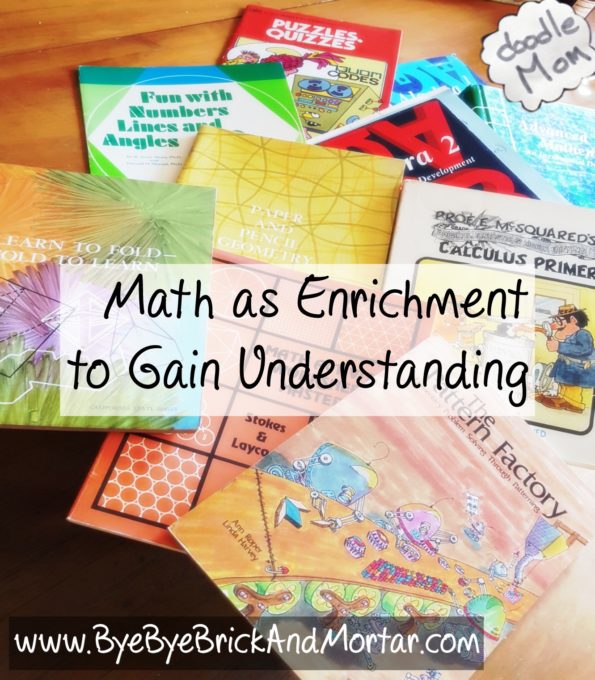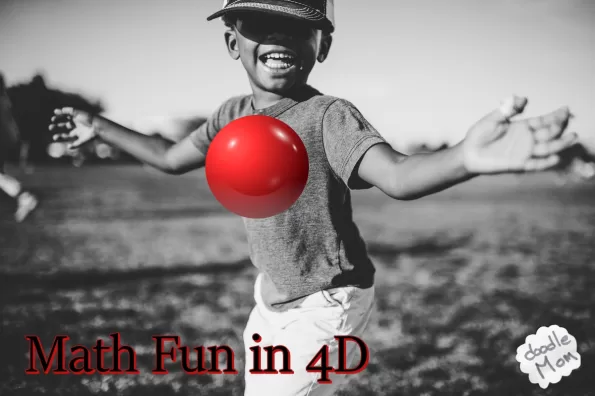Is math enrichment, and what do we have to do to really understand it?
 Most of us think of math as a required subject. The one with all the worksheets and memorization. The subject that starts with, “Because everyone needs to know this,” and often ends with tears and frustration. Most of us don’t think of math as an enrichment. But it really is.
Most of us think of math as a required subject. The one with all the worksheets and memorization. The subject that starts with, “Because everyone needs to know this,” and often ends with tears and frustration. Most of us don’t think of math as an enrichment. But it really is.
Math provides the tools to ‘enrich’ your child’s understanding of physics and chemistry and even biology and medicine.
Understanding math enriches your child’s ability to run a business, estimate and budget, and even to do their taxes one day.
Laurie and Harvey Bluedorn were the first homeschoolers I encountered who look at math as enrichment.
When I first read their ideas about when to begin teaching math, it was frankly a bit hard to swallow. They, as many others do, advocate beginning formal math instruction when your child is ten.
Ten!
By the time I was ten I was well into advanced math. Why would anyone wait until a child was ten to start?
And then I thought about the experiences I had teaching my own kids math. I started formal math with them when they were five. We began with adding and subtracting (counting came long before in the form of nursery rhymes and everyday life). As the process continued and my kids grew older, one of my children was just fine. He seemed to learn everything as we went along, and always understood right away. But my other child did not fare as well. From the beginning I think everything moved too fast for her. She did not fully understand a concept and required a lot of extra time and explanation.
Now that my kids are teenagers, I discover that my son did not retain a lot of the math I taught him even though he picked it up so easily initially. And my daughter, who struggled through each and every topic, really understands math. Why? Well, I think they were both too young to begin math at the start, as the Bluedorn’s suggest, and as a result the child who struggled got enough extra explanation to understand.
I am certain that if I had waited to teach my children math until they were older and focused instead on stories and reading and history (which we did regardless), their road to mastering math would be much cleaner with a stronger foundation.
So, did my kids really need to memorize their multiplication tables in second grade? Or would it have been better to wait until they were in sixth grade to understand what multiplication really means and then be able to use it as a tool to enrich their understanding of the world?
I think the answer is that I should have waited. Sadly I am now discovering this fully when my kids are done with the basic requirements of a mathematics education. But the saving grace is my attitude has changed. If they do not study any additional math, that is fine by me. I suspect, however that they will. They will realize that understanding the math of matrix operations, for example, enriches their ability to code that video game they are working on right now. And that is probably the best way to learn math – with context, as enrichment, and with complete understanding.
Now, how do you teach math to your own children? Did you delay math instruction?
As a note, Laurie Bluedorn is valiantly and gracefully battling ovarian cancer. It is so sad, and we pray for her to be strong. If you want to help her, you can purchase any of her homeschooling books available on Amazon (no affiliate links here – I just want you to help her if you can), of which there are so many!





